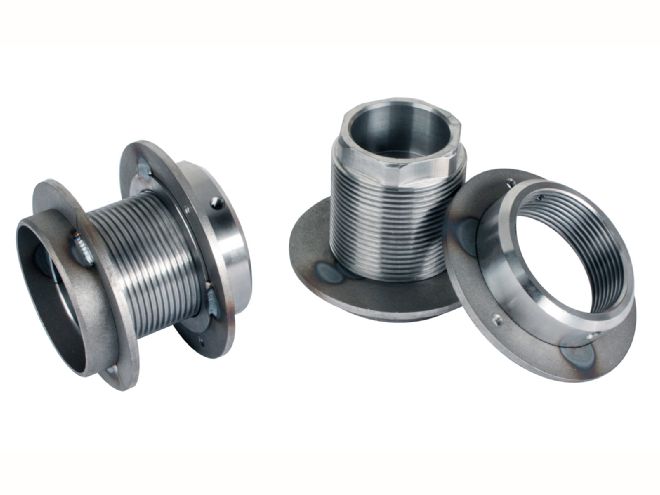
We were checking out Speedway Motors' bolt-together 1935-40 Ford display chassis recently and noticed something interesting about its Mustang II–style front suspension. The upper spring seats feature threaded adjusters, which allow the fine-tuning of ride height and suspension geometry. When we commented on this feature, we were told that not only was it standard on the 1935-40 IFS crossmember (as well as the similar 1947-54 Chevy pickup crossmember), but that Speedway also offers similar adjusters that can be installed on just about any aftermarket Mustang II–style IFS setup.
The concept behind Speedway's Mustang II Ride Height Adjusters is pretty simple: The upper spring seat is built on a threaded adjuster sleeve, which fits inside a threaded adjuster ring mounted to the spring tower on your frame. This allows the upper spring seat to be adjusted up or down to fine-tune your car's final ride height up to 2 inches. One of the primary benefits of this is the ability to adjust the suspension for proper travel and geometry, especially as the coil springs age and settle. Of course, many rodders will also like the idea of making slight altitude adjustments to fine-tune the appearance of their car, too. The adjusters can be used with nearly any aftermarket Mustang II–style front suspension that uses conventional coil springs and shocks.
We were able to walk through a sample installation of Speedway's ride height adjusters recently and found the process to be simple and straightforward. Take a look and see if these adjusters might be the solution you need for your ride-height woes, or maybe just a helpful tuning option to incorporate into your next Mustang II install.
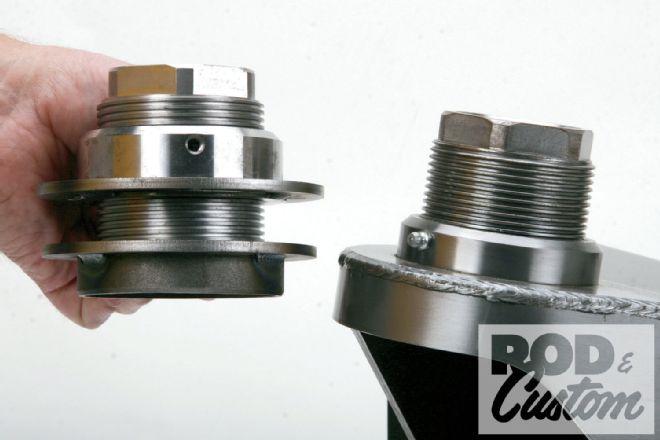 1. Need some adjustment in your Mustang II IFS? These Mustang II Ride Height Adjusters from Speedway Motors can help you fine-tune your suspension ride height up to 2 inches.
1. Need some adjustment in your Mustang II IFS? These Mustang II Ride Height Adjusters from Speedway Motors can help you fine-tune your suspension ride height up to 2 inches.
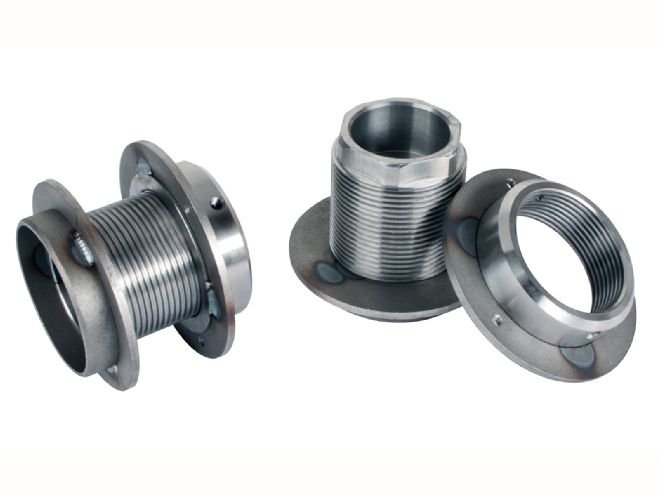 2. The Mustang II Ride Height Adjuster Kit consists of two threaded adjuster sleeves/upper spring seats, plus two adjuster rings that mount to the spring towers. Hardware and instructions are also included.
2. The Mustang II Ride Height Adjuster Kit consists of two threaded adjuster sleeves/upper spring seats, plus two adjuster rings that mount to the spring towers. Hardware and instructions are also included.
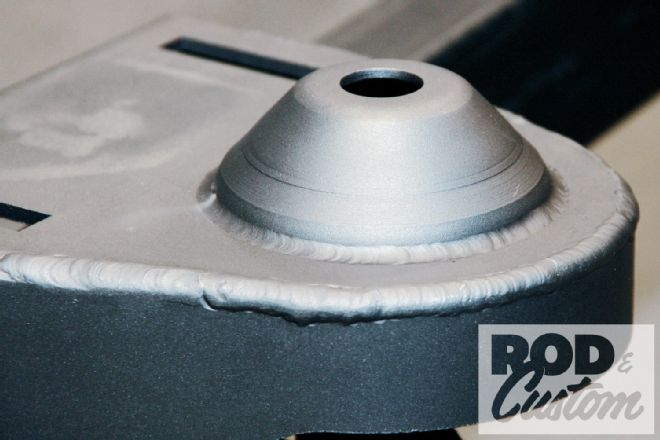 3. Most aftermarket Mustang II–style spring towers have stamped shock cups on top, which are part of the coil spring seats on the underside. These will need to be removed in order to install the Speedway ride height adjusters.
3. Most aftermarket Mustang II–style spring towers have stamped shock cups on top, which are part of the coil spring seats on the underside. These will need to be removed in order to install the Speedway ride height adjusters.
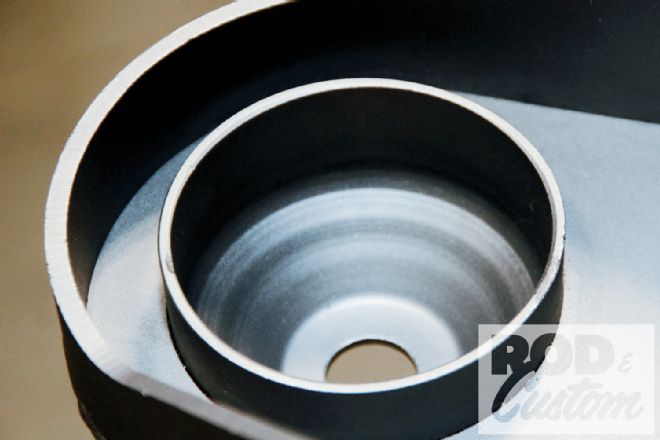 4. Here is the underside of the spring towers.
4. Here is the underside of the spring towers.
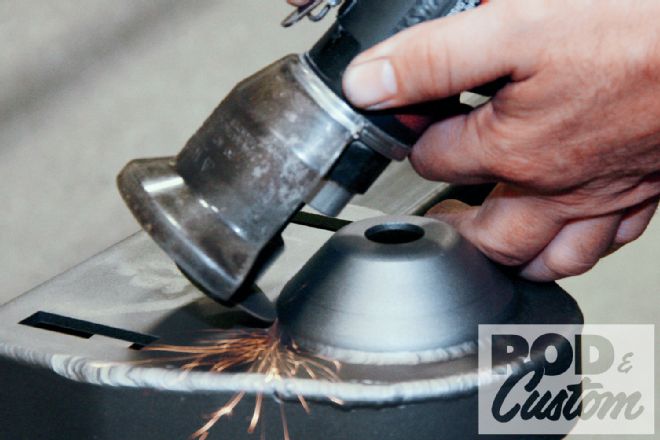 5. Ideally, you’ll use a plasma cutter or hole saw to remove the towers and machine a 3 3/8-inch hole for the adjuster base. You can also use a cutoff wheel (shown here).
5. Ideally, you’ll use a plasma cutter or hole saw to remove the towers and machine a 3 3/8-inch hole for the adjuster base. You can also use a cutoff wheel (shown here).
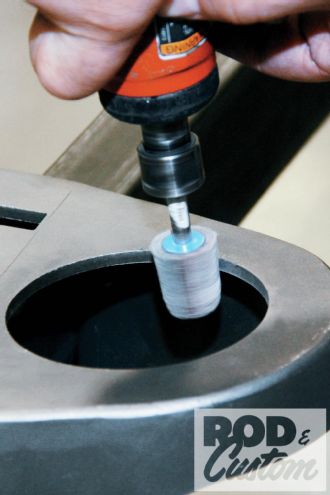 6. After cutting the hole, you’ll want to clean up the opening and test-fit the adjuster ring. It’s important not to make the hole too large, as that can interfere with the mounting holes and bolts.
6. After cutting the hole, you’ll want to clean up the opening and test-fit the adjuster ring. It’s important not to make the hole too large, as that can interfere with the mounting holes and bolts.
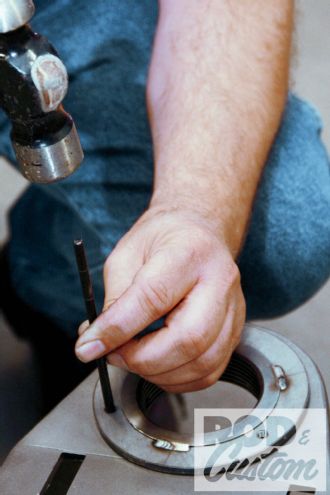 7. Once your hole is machined, place the adjuster ring upside down in the hole and use the three pre-drilled and threaded mounting holes on the ring to mark where holes will need to be drilled on the spring tower.
7. Once your hole is machined, place the adjuster ring upside down in the hole and use the three pre-drilled and threaded mounting holes on the ring to mark where holes will need to be drilled on the spring tower.
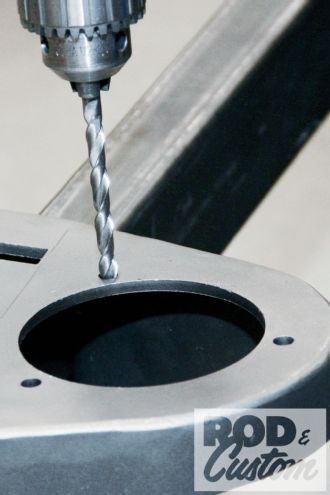 8. Use a 17/64-inch drill bit to drill out the mounting holes.
8. Use a 17/64-inch drill bit to drill out the mounting holes.
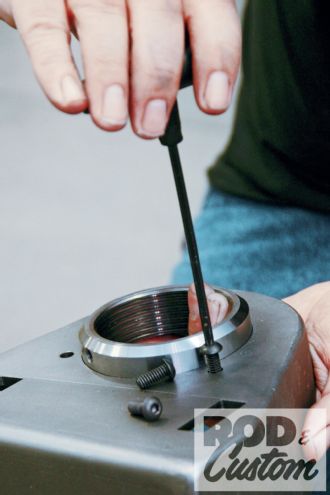 9. Install the adjuster ring from the bottom side of the spring tower and secure it in place using the supplied button-head bolts. You’ll want to use a thread locker on the bolts on final assembly. You can also tack weld the adjuster base in place, if you prefer.
9. Install the adjuster ring from the bottom side of the spring tower and secure it in place using the supplied button-head bolts. You’ll want to use a thread locker on the bolts on final assembly. You can also tack weld the adjuster base in place, if you prefer.
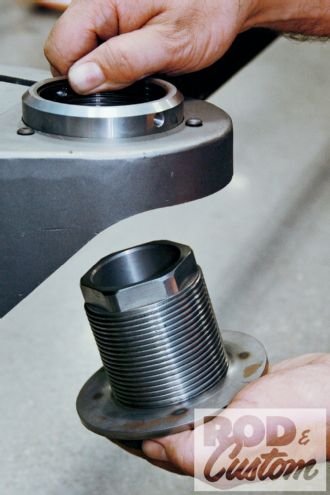 10. Install the adjuster sleeve by threading it in from the bottom and adjusting it to midpoint.
10. Install the adjuster sleeve by threading it in from the bottom and adjusting it to midpoint.
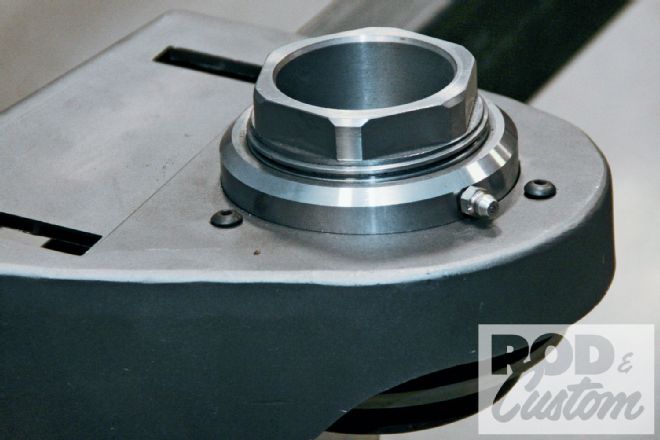 11. Install the grease fittings and set screws into the adjuster ring and grease the adjusters.
11. Install the grease fittings and set screws into the adjuster ring and grease the adjusters.
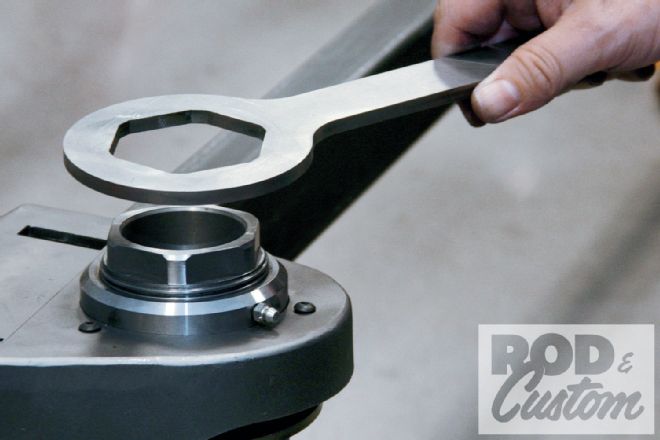 12. Once your suspension is assembled, you can use this adjuster wrench (available for purchase separately) to adjust the sleeve up or down and fine-tune the ride height. You will want to do this with the suspension unloaded.
12. Once your suspension is assembled, you can use this adjuster wrench (available for purchase separately) to adjust the sleeve up or down and fine-tune the ride height. You will want to do this with the suspension unloaded.